- Home
- / CL Answers
- / Sugar Substitutes: Pros, Cons, and Best Choices
www.consumerlab.com/answers/what-are-the-health-benefits-of-stevia-is-it-safe/stevia-benefits-safety/
Save to favorites
This feature is restricted to active members.
Join now to save favorites and get all member benefits, including over 1,400 reviews.
Join NowAlready a member? Sign in here.

Our Members Asked:
Sugar Substitutes: Pros, Cons, and Best Choices
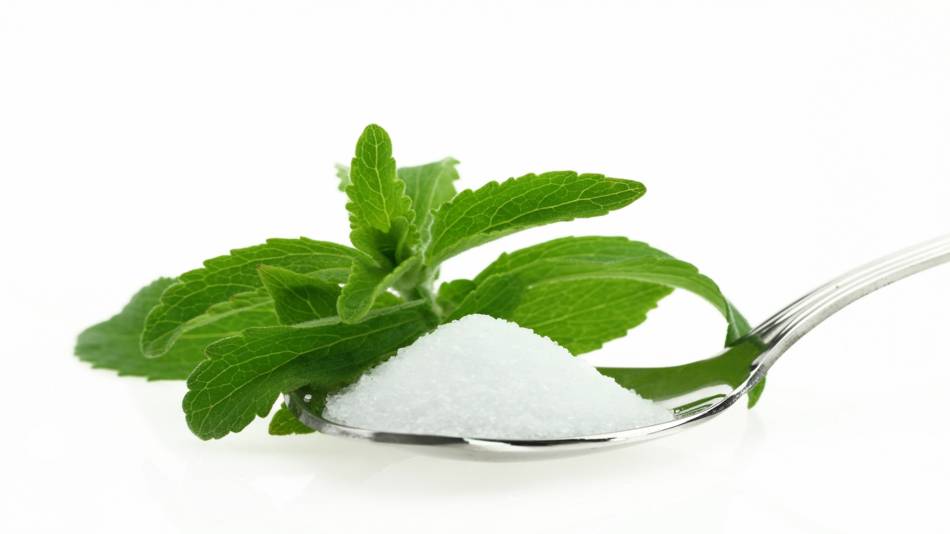
Answer:
Low-calorie sweeteners and sugar substitutes (also known as artificial sweeteners) are often considered healthier alternatives to sugar, and some are promoted to lower blood sugar and blood pressure, as well as lose weight, but some of these claims are weak, and many of these sugar substitutes can cause side effects. Furthermore, it has been recommended that certain sweeteners (see which ones) should not be used by the general population for weight control or to reduce the risk of cardiovascular and other chronic diseases. Be aware that products that contain sweeteners often contain significant amounts of other sugar-substitutes that labels don't clearly make evident.
The sweeteners fall mainly into three categories: High-intensity sweeteners that have no calories, such as stevia and monk fruit, as well as acesulfame K (Ace-K), aspartame, saccharin, and sucralose (be aware that since such small amounts of high-intensity sweeteners are needed, these are often combined with other, bulkier, sweeteners); Low-calorie sweeteners such as erythritol and xylitol as well as allulose, glycine, inulin, isomalt, kabocha extract, lucuma, polydextrose, sorbitol, and tagatose; and sugar alternatives such as agave syrup, black sugar, coconut sugar, date syrup, glycerol, honey, maple syrup, molasses trehalose, and yacon syrup.
Sign in as a member for details about the pros and cons of using each of these substitutes for regular, table sugar, including discussions of brands noted below. Also learn about which sweeteners may be suitable for people with diabetes, and safety concerns — including whether sweeteners might increase the risk of cancer, atrial fibrillation, or blood clots. You'll also see our Top Pick sweeteners for use in cold beverages, hot beverages, for baking, and for people following a low-carb or ketogenic diet.
Brands discussed in the full article include Alcohol-Free Stevia (NuNaturals), Allulose (Splenda), Allulose Zero Calorie Sweetener (Wholesome), BetterStevia (NOW Foods), Birch Xylitol Sweetener (Health Garden), BochaSweet, Chura Kokuto, Great Value Stevia (from Walmart), Inulin Prebiotic Fiber Sweetener (It's Just), Liquid Monk Fruit Sweetener Extract Drops (Lakanto), Lucuma Powder (Terrasoul Superfoods), Lucuma Powder (Zint), Monk Fruit Extract (It's Just), Monk Fruit in the Raw (Cumberland Packing Corp.), Monk Fruit Sweetener (Lakanto), Monk Fruit Sweetener (Llinea), Monk Fruit Sweetener (NuNaturals), Organic Coconut Palm Sugar (BetterBody Foods), Organic Coconut Sugar (Bob's Red Mill), Organic Coconut Sugar (MADHAVA), Organic Coconut Sugar (Terrasoul Superfoods), Organic Stevia (Micro Ingredients), Organic Stevia Extract (Trader Joe's), Pure Birch Xylitol (Morning Pep), PureVia (Pepsico and Whole Earth Sweetener Company), RxSugar (Nutrishus Brands), Simply Stevia (Stevita), Stevia Extract (BulkSuplements.com), Stevia in the Raw (Cumberland Packing Corp.), Sunett (Celanese),
In addition the results of its expert testing, ConsumerLab uses only high-quality, evidence based, information sources. These sources include peer-reviewed studies and information from agencies such as the FDA and USDA, and the National Academy of Medicine. On evolving topics, studies from pre-print journals may be sourced. All of our content is reviewed by medical doctors and doctoral-level experts in pharmacology, toxicology, and chemistry. We continually update and medically review our information to keep our content trustworthy, accurate, and reliable. The following sources are referenced in this article:
- 21 CFR 101.80
- ADA, Chewing Gum 2021
- ADA, Standards of Care in Diabetes — 2023
- ADA, Sugar Substitutes
- Abbasi, JAMA 2018
- Ahmad, Nutr Rev 2020
- Ahmad, Nutrients 2020
- Ahmed, Nutr Rev 2022
- Ahmed, Nutr Rev 2022
- Almiron-Roig, Appetite 2023
- Alwahsh, Arch Toxicol 2017
- Antenucci, Int J Obes (Lond
- Anton, Appetite 2010
- Ashwell, Nutr Today 2015
- Au-Yeung, J Funct Food 2023
- Baker-Smith, Pediatrics 2019
- Barriocanal, Regul Toxicol Pharmacol 2008
- Berry, J Appl Physiol (1985
- Boesch, Regul Toxicol Pharmacol 2001
- Bolger, LWT 2021
- Bordier, BMJ Nutr Prev Health 2023
- Bordier, Int J Mol Sci 2022
- Bordier, Nutrients 2021
- Bornet, Regul Toxicol Pharmacol 1996
- Bray, Am J Clin Nutr 2007
- Buemann, J Nutr 1998
- Buemann, Regul Toxicol Pharmacol 1999
- Burt, J Am Dent Assoc 2006
- CSPI, 2-6-2022
- Canadian Food Inspection Agency, 12-11-2014
- Carlini, J Appl Physiol (1985
- Chan, Br J Clin Pharmacol 2000
- Chen, Compr Rev Food Sci Food Saf 2022
- Chen, Front Microbiol 2022
- Cho, Complex Carbohydrates in Foods 1999; p 415
- Code of Federal Regulations, Accessed 9/10/25
- Collins, Nature 2018
- Dalenberg, Cell Metab 2020
- Daniel, Br J Nutr 2022
- Debras, PLoS Med 2022
- Delwiche, ACS Symposium Series 2008
- Donner, Nutr Res 2010
- EFSA
- EFSA, EFSA J 2011
- Edelstein, J Culin Sci Technol 2008
- Endotext [Internet], 2000, Table 20
- FDA 2015
- FDA 2020
- FDA GRAS Notice No. 1029
- FDA GRAS Notice No. 789, Table 3
- FDA Guidance, 10-2020
- FDA Press Announcement 2018
- FDA, 2-18-18
- FDA, 2-8-2018
- FDA, 21 CFR Part 172 Docket No. 2002F–0220
- FDA, 21CFR101.9
- FDA, 21CFR170.50
- FDA, 21CFR172.812
- FDA, 21CFR184.1835
- FDA, 7-14-23
- FDA, Agriculture Biotechnology 2022
- FDA, Aspartame and Other Sweeteners in Food 7-14-23
- FDA, Docket No. FDA-2020-N-1359
- FDA, GMO Crops 2022
- FDA, GRN No. 301
- FDA, High-Intensity Sweeteners 2-8-18
- FDA, High-Intensity Sweeteners 2018
- Farhat, Nutrients 2019
- FoodData Central, 3-30-23
- FoodData Central, 3-30-23
- FoodData Central, 3-30-23
- FoodData Central, 3-9-23
- FoodData Central, 6-24-24
- FoodData Central, 6-24-24
- Forster, Int J Vitam Nutr Res Suppl 1982
- Franchi, BM Open Diabetes Res Care 2021
- Freeman, Diabetes Spectr 2004
- Gardner, Diabetes Care 2012
- Geuns, Phytochemistry 2003
- Godebo, Environ Pollut 2025
- Goncalves, Neurology 2025
- González-Sarrías, Food Chem 2013
- González-Sarrías, Phytother Res 2011
- Goyal, Int J Food Sci Nutr 2009
- Gray, Endotext [Internet] 2019
- Gregersen, Metabolism 2004
- Grembecka, Eur Food Res Technol 2015
- Hajela, Int J Food Sci Nutr 2017
- Han, Nutrients 2018
- Han, Nutrients 2018
- Hayashi, Biosci Biotechnol Biochem 2010
- Health Canada, 2-16-2005
- Hira, Int J Mol Sci 2021
- Hooshmand, J Med Food 2014
- Hsieh, Clin Ther 2003
- International Sweeteners Association, 9/4/25
- International application number: PCT/US2012/049729
- Isomalt, In: Encyclopedia of Food Sciences and Nutrition (2nd Edition
- JECFA 96th Meeting, Summary of Findings 7-2023
- Jamir, Environ Technol Rev 2021
- Jones, Cancer Epidemiol 2022
- Kasti, Microorganisms 2022
- Kidangathazhe, Front Microbiol 2025
- Kroger, CRFSFS 2006
- Król, Acta Innovations 2019
- Lachman, Plant Soil Environ 2003
- Lee, Food Nutr Res 2021
- Lee, J Food Process Preserv 2020
- Liauchonak, Nutrients 2019
- Liauw, Can Fam Physician 2019
- Luo, Trends Food Sci Technol 2019
- López-Meza, Nutr Neurosci 2022
- Mahon, Bioorg Med Chem 2015
- Malik, J Food Qual 2007
- Marcus, Culinary Nutrition 2013
- Markus, Molecules 2020
- McCullough, Cancer Epidemiol Biomarkers Prev 2022
- Melis, Braz J Med Biol Res 1996
- Melis, J Ethnopharmacol 1995
- Mendez-Garcia, Microorganisms 2022
- Meyer-Gerspach, Nutrients 2021
- Miller, Br J Nutr 1995
- Mohan, Diabetes Ther 2024
- Mora, Foods 2022
- Morder, Cancer Discov 2025
- Morissette, J Nutr 2024
- Nadimi, Br Dent J 2011
- Namli, Food Biosci 2021
- Olas, Nutrients 2020
- Pacheco, Am J Clin Nutr 2024
- Park, J Funct Foods 2024
- PennState Extension, 2000
- Pinto, J Med Food 2009
- Pisarik, Cases J 2009
- Rahn, Food Chem 2010
- Rizwan, Contemp Clin Trials Commun 2018
- Romo-Romo, Clin Nutr ESPEN 2025
- Samarghandian, Pharmacognosy Res 2017
- Samuel, J Nutr 2018
- Saraiva, Int J Environ Res Public Health 2023
- Saunders, Regul Toxicol Pharmacol 1999
- Schiffman, J Toxicol Environ Health B Crit Rev 2023
- Shannon, Mol Cell Endocrinol 2016
- Shivani, Sci Rep 2021
- Shorter, J Urol 2007
- Singh, J Food Sci Technol 2018
- Soffritti, Int J Occup Environ Health 2016
- Srikaeo, In Food Res J 2015
- State of California Department of Justice, 1-22-2016
- Steffen, Int J Obes 2023
- Stepien, Eur J Nutr 2016
- Struck, Int J Food Sci Technol 2014
- Struck, Int J Food Sci Technol 2014
- Suez, Cell 2022
- Sun, Circ Arrhythm Electrophysiol 2024
- Sylvetsky, Am J Clin Nutr 2024
- Takahashi, Food Pres Sci 2017
- Tan, Food Res Int 2019
- Tey, Eur J Clin Nutr 2017
- Teysseire, J Nutr 2022
- Theophilus Eur J Microbiol Immunol (Bp
- Thomson, Br J Nutr 2019
- Tran, Am Health Drug Benefits 2017
- Tsan, JCI Insight 2022
- USDA FoodData Central, 3-13-23
- USDA, 2004
- USDA, FoodData Central 2022
- University of Sydney, Glycemic Index Research, Accessed 3-9-23
- VKM, 2016
- Vahedi, Der Pharmacia Lettre 2016
- Veena, Indian J Dairy Sci 2016
- WHO Guideline, 2023
- Witkowski, Arterioscler Thromb Vasc Biol 2024
- Witkowski, Eur Heart J 2024
- Witkowski, Nat Med 2023
- Woodbury, J Food Sci 2021
- Wu J Hazard Mater 2023
- Yamaguchi, Agr Biol Chem 1970
- Yang, JAMA Intern Med 2014
- Yshizane, Nutr J 2017
- Zaric, J Hazard Meter 2022
- Zia, LWT 2021
- de Cock, Pure Appl Chem 2009
Join today to unlock all member benefits including full access to all CL Answers and over 1,400 reviews.
Join NowAlready a member? Sign In Here.
Join now at www.consumerlab.com/join/
Agree to Comment Terms
Please abide by the following:
- If you make a statement of fact, such as whether a type of treatment does or does not work, state your basis -- such as personal experience or a published study.
- If you make a positive or negative comment about a product, note whether or not you have a financial interest in the product or in a competing product.
- Please be respectful in your tone.
- Please do not submit any type of HTML markup or scripting as it will not be accepted, nor will posts that exceed 2,500 characters.
For your privacy, only your first name (from your account) followed by a random number will appear with your comment. Your last name and email address will not be displayed.
Your comment has been submitted
We will review your comment before it is posted.

Related Reviews (4)
Latest Research Updates (Clinical Updates)
Sweetener & Stroke
October 30, 2025
A Caution with Sucralose
September 23, 2025
Be aware that regularly consuming sucralose may reduce the response to a cancer treatment, according to a recent study. Get the details in our article about sweeteners.
Allulose and GLP-1
September 19, 2025
The sweetener allulose can increase GLP-1 levels, but can it help manage weight like GLP-1 agonists such as Ozempic and Wegovy? Find out in the Allulose section of our article about sweeteners, which includes our Top Picks for low-calorie sweeteners.
Sweeteners & Cognitive Decline
September 09, 2025
Were low-calorie sweeteners linked with faster declines in cognitive function in a recent study? Find out in our article about sweeteners which includes our Top Picks among sweeteners.
Sucralose & Blood Sugar
September 05, 2025
Did consuming large amounts of sucralose (such as Splenda) daily increase blood sugar and insulin levels in a recent study? Find out in the Sucralose section of our article about the Pros and Cons of Sugar Substitutes, which includes our Top Picks among sugar substitutes.
Trehalose & Infection Risk?
June 24, 2025
Saccharin & Cancer
June 12, 2025
Effect of Sweeteners on the Gut
June 05, 2025
Black Sugar
April 10, 2025
More Xylitol Controversy
March 17, 2025
Arsenic in Honey
March 13, 2025
Isomalt Sweetener?
February 20, 2025
Concern with Sorbitol in Flintstones?
January 30, 2025
A CL member asked if sorbitol in Flintstones multivitamins poses a risk. See our discussion about this in our Multivitamin Review, which includes our Top Pick multivitamins for children and adults.
Also see our article: Sugar Substitutes: Pros, Cons, and Best Choices.
Allulose and the Gut Microbiome?
November 07, 2024
Non-GMO Allulose?
September 06, 2024
Sucralose & Diabetes
August 29, 2024
Maple Syrup for Heart Health?
August 26, 2024
Does Allulose Increase Infection Risk?
August 22, 2024
Erythritol & Clot Risk
August 12, 2024
Calories in Glycine?
July 29, 2024
Is Molasses Better Than Sugar?
June 25, 2024
Is Xylitol in Toothpaste Unsafe?
June 14, 2024
Also, find out if intake of regular sugar has been linked with heart-related concerns.
Xylitol & Heart Risk
June 11, 2024
Sweeteners and the Heart?
March 08, 2024
Sweeteners for Keto Diet
March 05, 2024
Sweeteners and Bladder Pain
March 01, 2024
Sucralose (Splenda) and Gut Microbiome
February 23, 2024
Sweeteners for Cold Drinks
February 09, 2024
Xylitol and Blood Sugar
January 09, 2024
Early Puberty from Sweetener?
September 15, 2023
A common sweetener was linked with early puberty in girls in a recent study. An increased risk of cancer has also been reported. See the details in our article about sugar substitutes.
Sweeteners & Obesity
August 08, 2023
Is long-term use of aspartame, saccharin or sucralose linked with increased body fat, weight gain, and risk of obesity? See what a recent study showed in our updated article about sugar substitutes.
Aspartame & Cancer
July 18, 2023
A group of experts recently classified aspartame as "possibly carcinogenic." Learn what evidence was used to support this classification, and find out if all experts agree with it, in the Aspartame section of our article about sugar substitutes.
Best Sweeteners?
July 14, 2023
Find out which lower-calorie sweeteners are our Top Picks for use in cold beverages, hot beverages (such as in coffee or tea), and baking, in our article about sweeteners.
Allulose & Blood Sugar
June 27, 2023
Does using the sweetener allulose along with sugar help lower blood sugar and insulin levels after a meal? Find out what a recent study showed in the Diabetes section of our article about sweeteners.
Also, find out what the main ingredient is in BetterStevia Organic Glycerite. Hint: It’s not stevia.
DNA Damage from Sweetener?
June 02, 2023
Can sucralose (such as in Splenda) cause DNA damage? See what new research suggests in our updated article about sweeteners.
Sweeteners & Diabetes
May 26, 2023
Which sweeteners are most suitable for people with diabetes? Find out in the Diabetes section of our article about sweeteners.
Caution With Sweeteners
May 19, 2023
Certain sweeteners should not be used for decreasing weight or preventing chronic diseases, according to a new report. Find out which sweeteners are of concern and why in our updated article about sweeteners.
Acesulfame K (Ace-K)
April 25, 2023
How does the sweetener acesulfame K (Ace-K), found in products such as Sunett and Sweet One, compare to sugar and is it safe? Find out in our updated article about stevia and sugar substitutes.
Aspartame & Cancer?
April 21, 2023
Another study has found a link between use of aspartame (in Equal and NutraSweet) and increased cancer risk. Learn more in our article about sweeteners (which covers more than 20 types of sweeteners).
Better Agave Syrup?
April 14, 2023
Is Volcanic Nectar Blue Agave a healthier option than other agave syrups? Find out in the Agave syrup section of our CL Answer about stevia and other sweeteners.
Flavor of Polydextrose
April 11, 2023
Polydextrose, which is sometimes used as a sweetener, can have a range of flavors depending on its form. Get the details in the Polydextrose section of our article about stevia and other sweeteners.
Lakanto Without Erythritol?
April 07, 2023
We previously reported that Lakanto Monkfruit Sweetener is mostly erythritol, with very little monk fruit. However, not all Lakanto products contain erythritol. Get the details in the Monk Fruit section of our article about the Pros and Cons of Sugar Substitutes.
Sweeteners - Aspartame Intake Limits and Side Effects
April 04, 2023
- How many diet sodas would need to be consumed to exceed the acceptable daily intake limit for aspartame?
- Have sweeteners been linked with ringing in the ears? Read about rare reports with aspartame and saccharin.
- Are tagatose or glycine good options for use as sugar substitutes?
Agave, Honey & Maple Syrups
March 31, 2023
Questions About Sweeteners
March 24, 2023
Learn about polydextrose, sorbitol, and trehalose in our article about the Pros and Cons of Stevia and Other Sugar Substitutes.
Also find out if stevia loses sweetness during storage.
Erythritol-Heart Link Questioned
March 17, 2023
Some websites have tried to dismiss the recently reported link between erythritol and heart-related adverse events. Find out why these suggestions are flawed in our article about sweeteners.
Also, find out why some monk fruit sweeteners are sweeter than others and learn about potential safety concerns with aspartame (in NutraSweet and Equal) and sucralose (in Splenda).
Stevia & Appetite?
March 10, 2023
How do beverages sweetened with stevia or other low-calorie sweeteners affect blood sugar and appetite compared to sugar-sweetened beverages? See what a recent study found in our updated article about stevia and other alternative sweeteners.
Heart Risk from Erythritol Sweetener?
March 03, 2023
High intake of erythritol was linked to an increased risk of heart attack and stroke in a recent analysis. Should you be concerned? Find out in the Erythritol section of our CL Answer about sweeteners.
Stevia & Brain Function
December 16, 2022
Does taking stevia adversely affect cognition or brain function? Find out what research shows in our updated CL Answer about stevia and other natural sweeteners.
Allulose Questions
December 09, 2022
- Is allulose (a low-calorie sweetener) likely to form compounds that have been linked with chronic disease?
- How can I avoid allulose made from genetically modified corn?
Allulose vs. Sugar
December 06, 2022
How did the taste of the low-calorie sweetener allulose compare to table sugar, stevia, and sucralose (Splenda) in a recent study? Find out in our updated article about stevia and other natural sweeteners.
Monk Fruit and Erythritol Sweeteners
November 25, 2022
Allulose: Safety and Benefits
November 22, 2022
Does allulose, a low-calorie sweetener, have any health benefits or risks? Find out in the Other natural sweeteners section of our CL Answer about stevia and other natural sweeteners.
Is Stevia Safe?
November 18, 2022
We've added new safety information to our answer to questions about stevia.
Health Benefits of a Natural Sweetener?
November 11, 2022
Does lucuma powder, a natural sweetener, have particular health benefits? Find out in the Other Natural Sweeteners section of our answer to the question: What are the health benefits of stevia?

Related Content
Join over 100,000 Members
Find the best products with instant access to our latest tests & reviews of over 1,400 health products.
Save money by finding high-quality products at lower cost.
Stay safe with the latest clinical findings, warnings, and expert answers.
Suggest products to test.
Stay informed with our e-newsletter.
Ratings of ConsumerLab

The "Updated" date indicates when new information was most recently added to this article. In the full article, the newest information is highlighted in yellow.
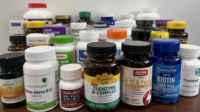
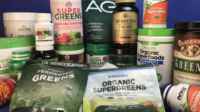
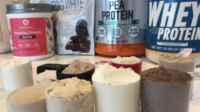
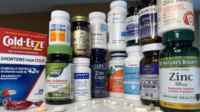






Submit your comment
This feature is restricted to active members.
Join now to add comments and get all member benefits, including over 1,400 reviews.
Join NowAlready a member? Sign in here.